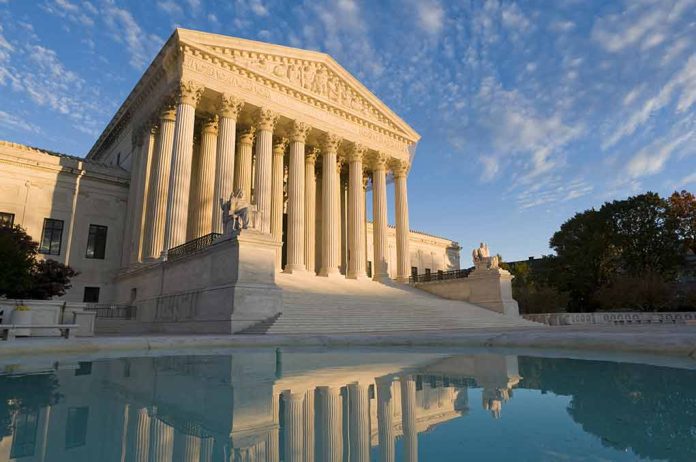
(RepublicanPress.org) – In recent years, there has been ongoing debate about content moderation and free speech on social media. Those concerns peaked when Facebook and Twitter deplatformed former President Donald Trump in the wake of the January 6, 2021, riot at the nation’s capital. The Supreme Court is now considering the free speech implications of new laws in Texas and Florida limiting social media sites’ editorial discretion over content and their ability to ban users.
On February 27, the Supreme Court heard oral arguments about those laws for nearly four hours. The Texas law restricts social media platforms from restricting content reflecting users’ viewpoints. Florida’s statute provides similar limits and bars sites from permanently deplatforming political candidates.
The US Supreme Court struggled to find a middle ground on the application of free-speech principles to the internet. https://t.co/nTujydVy6J
— Bloomberg Law (@BLaw) February 27, 2024
The justices appeared to agree that social media platforms are potent vehicles for sharing ideas, and a large volume of harmful and hurtful content can appear on those sites without moderation. However, they seemed to be perplexed about how to balance the Big Tech companies’ argument that they must be allowed to decide what content and users to allow on their sites with the two states’ argument that they need to have the ability to protect their respective residents’ right to hear a wide range of viewpoints.
At one point, Justice Samuel Alito pressed a lawyer for the tech industry to define the term “content moderation,” asking whether it was “anything more than [another word] for censorship.” The attorney responded that if a government entity was doing it, content moderation might be another term for censorship. However, if a private company did it, “content moderation [was] a euphemism for editorial discretion.”
Chief Justice John Roberts said a key concern for justices involved determining whether social media platforms or the government can decide what content appears on a particular site. He noted that the First Amendment sides with private companies when that question is asked. He said the Constitution prohibits the government from censoring speech, not private companies.
For now, the courts have placed both laws on hold. The 11th Circuit Court of Appeals blocked most of Florida’s law. The 5th Circuit upheld Texas’ law, but the Supreme Court blocked it until the case worked its way through the courts.
Copyright 2024, RepublicanPress.org














